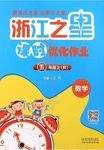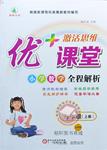题目内容
8.Felicity Miller,a 32-year-old British woman,(61)whohas a Chinese husband,still remembers the(62)excitement (excite) when she first learned to use the"red packet"function on WeChat in 2015.She sent and grabbed some red packets in her Chinese family's group.The rule in her family was that the person who grabbed the(63)highest (high) amount sent the next.Attracted by the unique way of communicating,many foreigners have joined(64)their (they) friends in sending and grabbing red packets so far.Usually,the money in each packet is random.Thus the amount of money one can grab(65)largely (large) depends on his or her luck,from 0.01 yuan to less than 200 yuan.Many foreigners get more familiar(66)withChinese culture through"red packets".Two years ago,when Felicity Miller was sent 5.20 or 8.88 yuan red packets,she had no clue about the(67)hidden(hide) meanings.Now,she has known about them.However,the popularity of virtual red packets doesn't stop people sending paper red packets(68)containing (contain) real cash during the Spring Festival.It(69)is called (call) lucky money.In Chinese tradition,people take lucky money for children as(70)a blessing.分析 本文是一篇说明文.主要介绍了微信红包的流行不仅使外国人喜欢,更让他们熟悉了中国的传统文化.
解答 61.who 考查定语从句.分析句子结构可知这是一个定语从句,先行词Felicity Miller在从句中作主语,用关系代词who.
62.excitement 考查名词.remember是动词,后接名词作宾语.
63.highest 考查形容词最高级.根据句意:她家的规定是抢到最大数目红包的人继续发下一个.用形容词最高级highest.
64.their 考查代词.their指代文中的many foreigners.
65.largely 考查副词.depend on是动词短语,要用副词修饰.
66.with 考查介词.get familiar with意为"熟悉",是固定搭配.
67.hidden 考查过去分词.根据句意:以前她不知道数字的隐藏含义.hidden意为"隐藏的".
68.containing 考查现在分词.packets与contain之间是主谓关系,用现在分词短语containing real cash作后置定语.
69.is called 考查动词时态和语态.it与call之间是动宾关系,且表示的是一般事实,用一般现在时态的被动语态.
70.a 考查冠词.blessing是可数名词,单数形式前加不定冠词a表示泛指.
点评 在一篇200词左右的语篇(短文或对话)中留出10处空白,部分空白的后面给出单词的基本形式,要求考生根据上下文填写空白处所需的内容或所提供单词的正确形式,所填写词语不得多于3个单词.要做好语法填空题,理解短文是解题的前提,扎实的词汇、句型和语法知识是基础,英语国家的背景知识是必要的补充.考生须灵活运用语法知识,如单词词性、单词时态、名词单复数、连接词、代词、冠词等判断各空白处应填写的内容.答完后,还要通读全文,核对所填单词形式是否正确,是否符合语境.

 浙江之星课时优化作业系列答案
浙江之星课时优化作业系列答案 激活思维优加课堂系列答案
激活思维优加课堂系列答案